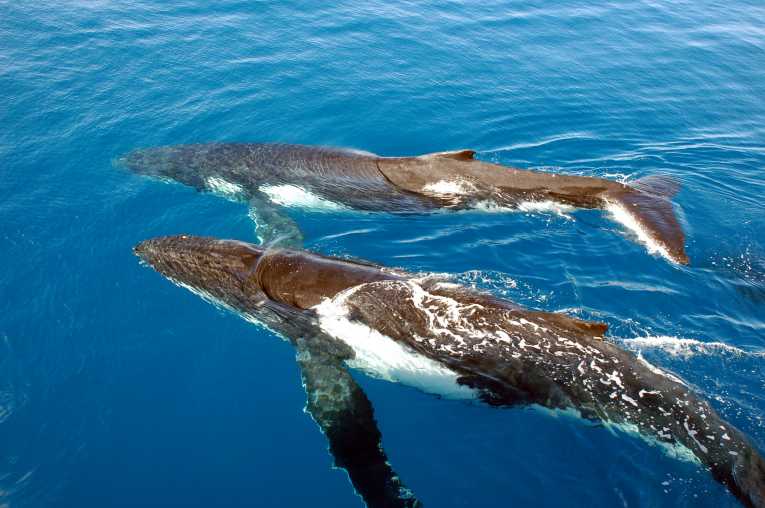There are literally dozens of environmental organisations in the world, with most countries having at least one government ministry or agency with a dedicated role to monitor and protect the environment.
In addition there are a large number of Private Organisations, sometimes known as Non-Government Organisations (NGOs). A significant number of these have a worldwide coverage and although some of them are relatively unknown outside a fairly specialised circle, several, such as Friends of the Earthand Greenpeace have an international profile and reputation.
Other International NGOs include:
An even greater number of these NGOs are specific to individual countries and are often concerned with environmental issues of a particularly localised area within that country. Others are concerned with more general environmental issues or concentrate on a specific endangered species or particular group of flora or fauna within a definite area.
Examples of this wide range include:
There are also a number of intergovernmental organisations.
The United Nations Environment Programme (UNEP) looks at a number of world environmental issues. These include:
In a world faced by unprecedented environmental challenges and opportunities, UNEP is working to provide leadership to promote the intelligent use of the planet's natural assets for sustainable development. Through a Green Economy Initiative UNEP strives to inspire and support nations and communities to improve their quality of life without compromising that of future generations.
UNEP, working with the World Bank and the United Nations Development Programme (UNDP) is also an implementing agency of the Globe Environment Facility (GEF). It is the only GEF Agency where the entire focus is on the environment.
Ambitious targets have been set to eliminate world poverty through the promotion of security and the preservation of ecosystems that poor people rely on for their livelihoods. Green economic growth and environmental sustainability must be at the heart of all economic policies, planning systems and institutions.
The Intergovernmental Panel on Climate Change (IPCC) is a scientific body tasked with reviewing and assessing the world's most recent scientific, technical and socio-economic information relevant to the understanding of climate change. The panel was established in 1988 by two UN organisations: the World Meteorological Organisation (WMO) and the UN Environment Programme (UNEP).
The aims of the IPCC are to assess scientific information relevant to:
IPCC does not carry out its own original research, nor does it do the work of monitoring climate. Its main activity is the publication of special reports on topics relevant to the implementation of the UN Framework Convention on Climate Change (UNFCCC). This is an international treaty that acknowledges the possibility of harmful climate change.
It was implementation of the UNFCCC that eventually led to the Kyoto Protocolthat set binding targets for 37 industrialized countries and the European community for reducing greenhouse gas (GHG) emissions by an average of five per cent against 1990 levels over the five-year period 2008-2012.
IPCC reports are widely cited in almost any debate related to climate change and national and international responses to climate change generally regard the IPCC as authoritative.
The Earth System Governance Project is a network of social and natural scientists who are engaged in research on the governance of coupled socio-ecological systems at all levels. It is the world's largest social science research network in the area of governance and global environmental change.
Its international research programme explores political solutions and novel, more effective governance systems to cope with the current transitions of the biogeochemical systems of our planet.
Sustainable development is at the heart of its research. Earth system governance is seen as being a challenge for political legitimacy and social justice and not just as a question of governance effectiveness.
The Earth System Governance Project is a core project of The International Human Dimensions Programme on Global Environmental Change (IHDP). IHDP's aim is the provision of international leadership that will frame, developing and integrate social science research on global environmental change and promote key findings of this research to help to address these changes.
The European Environment Agency (EEA) was established by the European Union to monitor the European environment. The EEA has 32 member countries; the 27 EU member states, plus Iceland, Norway, Liechtenstein, Turkey and Switzerland, with the seven West Balkan states as co-operating countries. The EEA also engages in extensive international co-operation beyond its own membership.
The EEA works closely with national environmental agencies or environment ministries of member countries. These National Focal Points are responsible for co-ordinating networks that bring together around 1,000 experts from over 350 national institutions and other bodies dealing with environmental information.
Particular areas of concern include air and climate change, the impact of climate change, biological diversity, water, land use and sustainable consumption and production.
For a great many years the world took its environment very much for granted. It is only in relatively recent times that there has been concern about the amount of damage that has been done and the risk to future generations if safeguards are not put in place.
The growth in the number of environmental organisations throughout the world is a reflection of this concern, but the future of the world as we know it will depend on actions and not just words.















